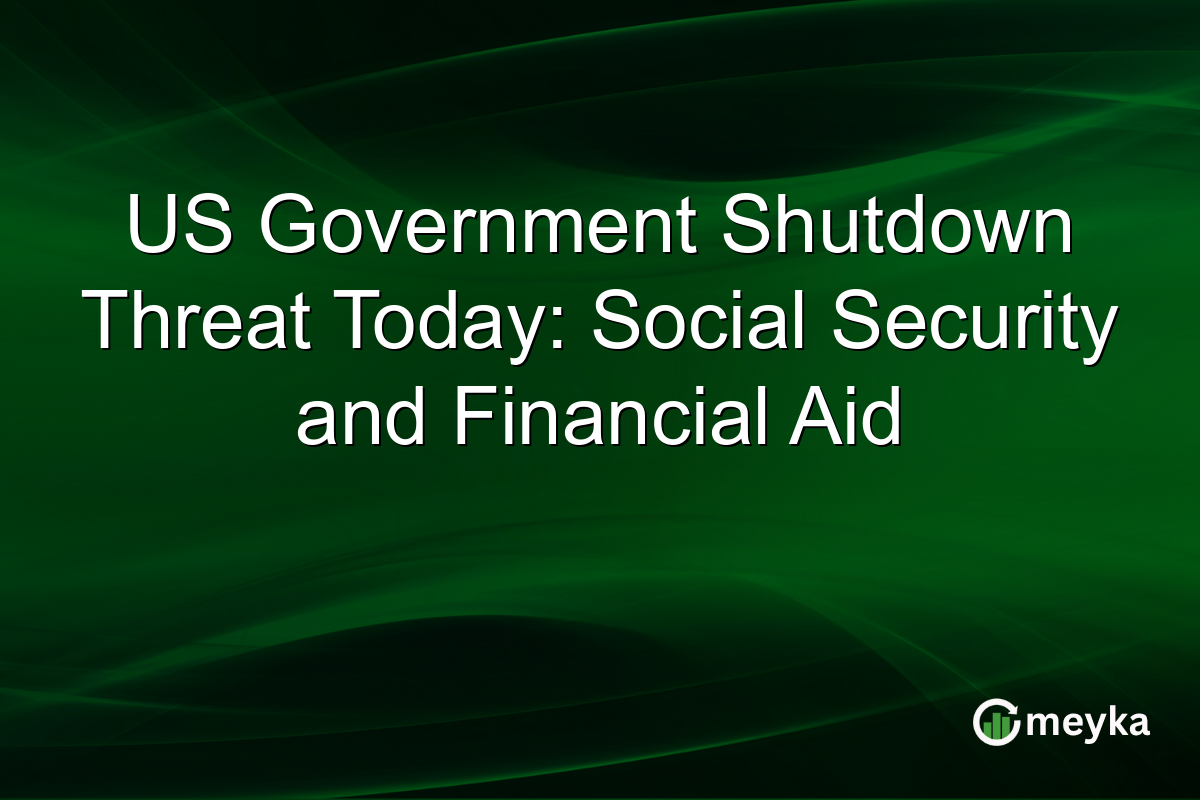US Government Shutdown Threat Today: Social Security and Financial Aid
As the US government faces another imminent shutdown, the ramifications extend far beyond Washington. Our focus remains on the implications for Social Security and financial aid. While Social Security checks are likely to continue, the uncertainty in federal operations could affect various benefits. This shows the critical importance of swift, decisive negotiations in Congress. Lawmakers are racing against time to settle disputes over funding bills, with the pressure mounting daily.
Current State of Federal Negotiations
Bipartisan negotiations are now in focus as the deadline looms for finalizing funding bills. The stakes are high, and the atmosphere is tense. Lawmakers must bridge gaps in spending priorities to avert a shutdown. Congress has until midnight on October 25, 2025, to reach a consensus. The balance between party agendas and fiscal responsibility remains the core issue. Political analysts suggest that failure to agree could disrupt not only government operations but also broader economic stability. For investors, the uncertainty is unsettling, as seen in recent market fluctuations.
Impact on Social Security and Financial Aid
Despite the looming threat, Social Security payments are expected to continue without interruption. The Social Security Administration, funded outside annual appropriations, assures continued operations. However, peripheral services may face delays. Economic uncertainty could affect other financial assistance programs like grants and aid scheduled alongside. Read more on the looming shutdown impact (no anchor link here){:target=”_blank” rel=”nofollow”}. This highlights the dependence of many on efficient government operations.
Effects on Retirees and Consumer Confidence
The elderly, relying heavily on Social Security for daily expenses, face ongoing anxiety. While direct payments are secure, any prolonged shutdown affects governmental support services. Inflationary pressures compound the retirees’ concerns, impacting consumer spending. Additionally, uncertainty could dampen consumer confidence, reducing market activity. For investors, this creates a volatile environment where strategic asset allocation becomes crucial. Continuous monitoring of government actions and market responses is advised.
Final Thoughts
As the deadline for a government shutdown nears, the potential impacts on Social Security and financial aid are of significant concern. While payments remain secure, the broader implications of a shutdown could ripple through the economy, affecting market stability and consumer confidence. Negotiations in Congress must urgently address differences to ensure continuity of critical services. Investors should keep an eye on developments, adjusting portfolios to manage potential risks. The situation underscores the delicate interplay between politics and economic stability, urging proactive legislative action.
FAQs
No, Social Security payments are expected to continue despite the government shutdown threat. The funds are paid from a trust independent of the annual budget cycle, ensuring their stability.
While Social Security is secure, other federal aid programs might experience delays. Administrative services may slow, affecting processing times for new applications during a shutdown.
Retirees should remain informed about the status of their benefits and prepare for potential disruptions in related government services. Maintaining updated financial plans can provide stability.
Disclaimer:
This is for information only, not financial advice. Always do your research.






